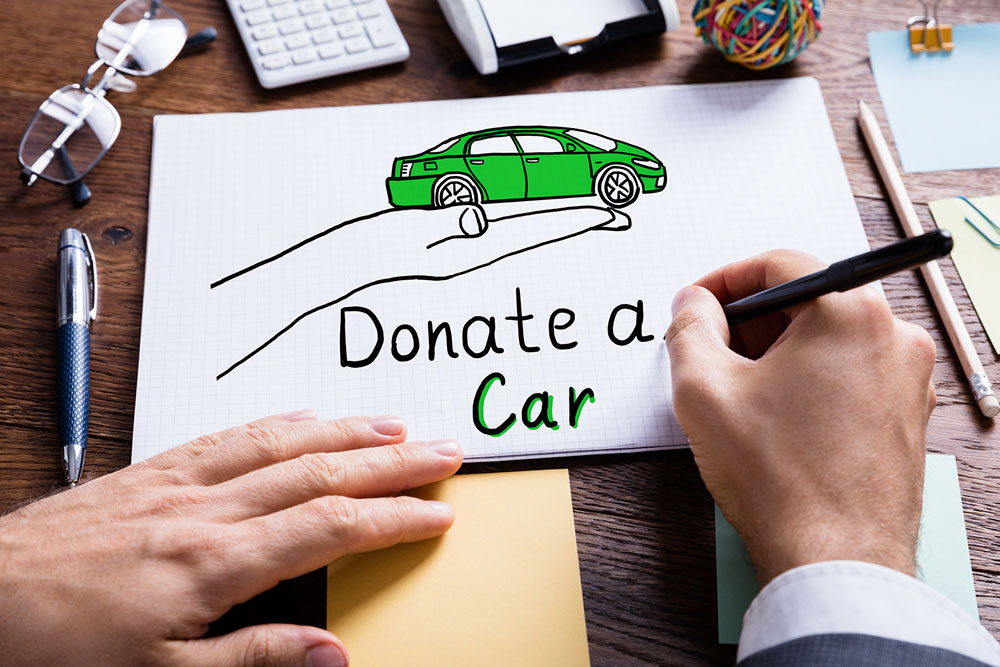Top 7 Benefits of Donating Cars to Veterans
Donating something to a person who needs a particular thing or some kind of aid can be emotionally rewarding. One can consider donating a car for veteran support. The donation could help an organization support various programs, including free transportation for veterans with disabilities. This further offers encouragement and support to veterans who have served the country. There are many perks to donating cars to veterans or institutions that help them.

1. Helps save money
Some people often hold on to things for various reasons. They would not want to give up their old car, as it was the first car they had driven or a vehicle they intended to fix. However, not giving away a car that is not being used is not a wise financial decision, as the owner may have to pay for insurance, repairs, replacements, etc. Therefore, donating the car to an organization that supports veterans could help avoid these costs and save money.
2. Opens up space for other things
A common problem with holding onto an old or unwanted car is that it takes up unwanted space. If an individual has a small garage or shed, an idle vehicle will take up a lot of space. Donating the car could free up space in the garage and make room for another vehicle or something else they desire.
3. Gives one peace of mind
Knowing that one can donate their car, irrespective of why they are holding onto it, could be a nice feeling. Most organizations accept vehicles in any condition, meaning one does not have to think about maintenance issues when they donate the car. Some nonprofits also accept junk cars, which are sometimes troubling to dispose of. Therefore, a donation can reduce the stress of holding onto an old car and bring peace of mind.
4. No work involved
Donating a car might seem confusing at first. However, the process is significantly easier. One needs to contact the respective organization, which will answer all relevant questions. The respective charity for veteran support will also help schedule the vehicle towing time, pick it up, and deal with the paperwork. Additionally, the veteran support organization usually processes the title, mail tax documents, and receipt so that one does not have to worry about it after the car is collected.
5. Offer free pickup service
Most charitable organizations that pick up cars for veteran support offer the towing for free. The service might be available in most parts of the country, including rural and urban areas. One should ensure they check with the organization about the terms of towing the vehicle before they sign any associated documents.
6. Helps one support those in need
When one donates vehicles, they ultimately support veterans in several ways. For instance, the car may help the support group get the veteran from their home to a healthcare appointment, and vice versa. If the organization sells the car, the proceeds could help fund programs such as health and wellness, employment, housing, and disability resources for veterans. All of this may help the donor be part of supporting the program in one way or another.
7. Helps save tax
Nonprofit organizations that are 501(c)(3) compliant will offer tax savings to their donors. When the vehicle is picked up, the individual will receive a receipt that they can use to claim a deduction on the following year’s taxes. The driver usually provides an initial donation receipt. One may claim this as a tax deduction for the vehicle’s fair value up to $500 on the donation, even if the car sells for less. Additionally, if the vehicle sells for over $500, the nonprofit provides a 1098-C IRS form, which enables one to claim the full sale price.
Ways to donate cars to charities for veteran support
Many may wonder how and where they could donate their pre-owned car to support a charity for veterans. Here’s how:
1. Read about various charities
Once an individual decides to donate their car to a charity for veteran support, they should research all the available options. A simple search for terms like “veterans auto donation near me” or similar keywords will help identify various nonprofit organizations in the area. One could also ask friends, family, or colleagues for potential references.
2. Look into registration and tax-exempt-related information
Once an individual has selected a charity that appeals to them, they should check if the nonprofit is registered and tax-exempt. One could search the Office of the New York State Attorney General’s (OAG) Charities Bureau Registry to determine if the charity is appropriately registered and has filed with the Attorney General. Additionally, the donor should confirm if the charity is a 501(c)(3) organization. One can look up the 501(c)(3) organizations that IRS Publication 78 lists.
3. Get in touch with the nonprofit organization
After checking everything about the nonprofit, one must follow a few general steps. The donor could contact the charity by searching for their number, filling out an online form, or visiting their staff representative. Following this, the nonprofit organization will inform the donor about various things, such as ways to donate, where the car or money from the sale of the car will be used, how the vehicle will be picked up, and the available tax benefits.